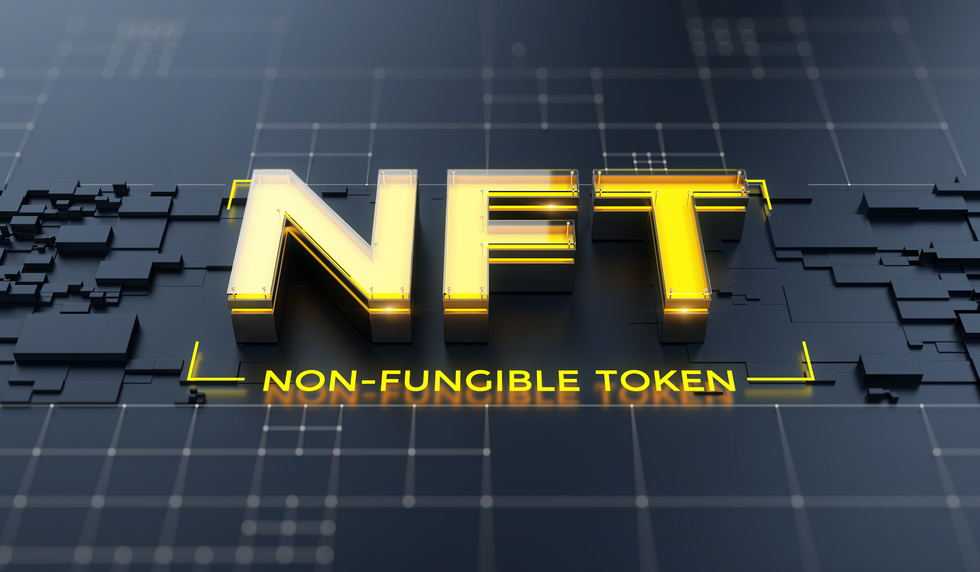The Legal Challenges of Non-fungible Tokens (NFTs)

What are NFTs?
Non-fungible tokens, or NFTs, are the latest cryptocurrency-adjacent digital assets. If something is fungible, it has the same value as something else—for example, if you exchange a dollar for another dollar, the value of that dollar doesn’t change. Cryptocurrency is also fungible; one Bitcoin or Ethereum has the same value as another Bitcoin or Ethereum.
An NFT, on the other hand, is a unique digital asset and cannot be exchanged for another NFT. In March 2021, for example, Christie’s sold a digital piece of art titled, The First 5000 Days, which belonged to the collection Everdays. This collection is comprised of artwork created daily since 2007, without any days being missed. Although the lot was open for less than three weeks, and the bidding began at $100, the final purchase price was significantly higher.
This NFT sold for more than $69 million, the third-largest amount paid for a piece of art by a living artist (Beeple, whose actual name is Mike Winkelmann). Like any new commodity, NFTs present a range of legal challenges and concerns that may become clearer with time, but for now, remain a problem. As laws are settled, some of these expectations and requirements may become less of a challenge. Most of the NFT instances that we’re now seeing are digital-art specific, although this could easily change in the future. NFTs do not seem to be slowing down—nonfungible.com reported that more than $2 billion was spent on NFTs in the first quarter of 2021 alone.
Legal Concerns
The legal concerns around NFTS can be divided into two main categories. To begin with, owning an NFT can lead to legal challenges tied to the actual NFT. The second main area of concern connects to the actual transaction itself, wherein someone pays for an NFT. Let’s look closer at some of the potential issues for both areas.
Connected to the NFT
IP rights and Copyright
NFTs are popular precisely because they help create scarcity for digital artwork—which can easily be copied, replicated, and adapted—in an irrefutable manner. They’re a response to the question of ownership and scarcity for digital goods.
In the past, most physical artwork has not come with intellectual property (IP) rights. But because of NFT’s novel nature, IP rights must be carefully detailed in a contract. Historically, copyright law has assumed that fine art is tangible—and NFTs raise the question of whether or not fine art is actually tangible. If a buyer wants to display the digital art they’ve purchased in NFT form, do they have that right?
Any seller of an NFT, whether they are as prestigious as Christie’s, as mundane as your neighbor next door, or anywhere in between, needs to clarify these rights in the terms of service or contract. Without this legal protection, vendors may find themselves embroiled in legal battles to determine the rights of the NFT owner or in a disputed transaction. Licensing language will also be critical.
Connected to the Transaction
Now that we’ve considered the artwork itself, the other main area for legal challenges is in the regulations and classifications surrounding the actual transaction. Currently, the question of classification is the most prominent—as that will determine who sets regulations. If NFTS are classified as crypto-assets (as the European Securities and Markets Authority does), then they are regulated by a different entity than if they are categorized as commodities (under the Commodity Exchange Act). NFTs also share qualities with cryptocurrencies, as both are sold, purchased, and cataloged using blockchain technology. NFTs categorized as securities would have to address common securities law concerns. If NFTs are considered goods, then do they fall under laws applicable to goods such as the Uniform Commercial Code (UCC)?
If NFTs are considered currency substitutes, they could potentially fall under anti-money laundering laws. Some states have passed laws connected to digital currencies (such as Louisiana and New York). If NFTs qualify as digital currency, they would be accountable to the applicable state laws. Or, if your business is registered in another state and you are selling NFTs, are you currently qualified in California, your state of residence?
Regardless of the classifications, NFTs present significant legal challenges and concerns. Until this new asset class is more clearly defined in legal terms, individuals or funds that choose to invest in NFTs should make certain to speak with legal professionals who can help them protect the asset and the transaction. Contracts and terms of service need to be explicit and detailed to account for the various permutations.

